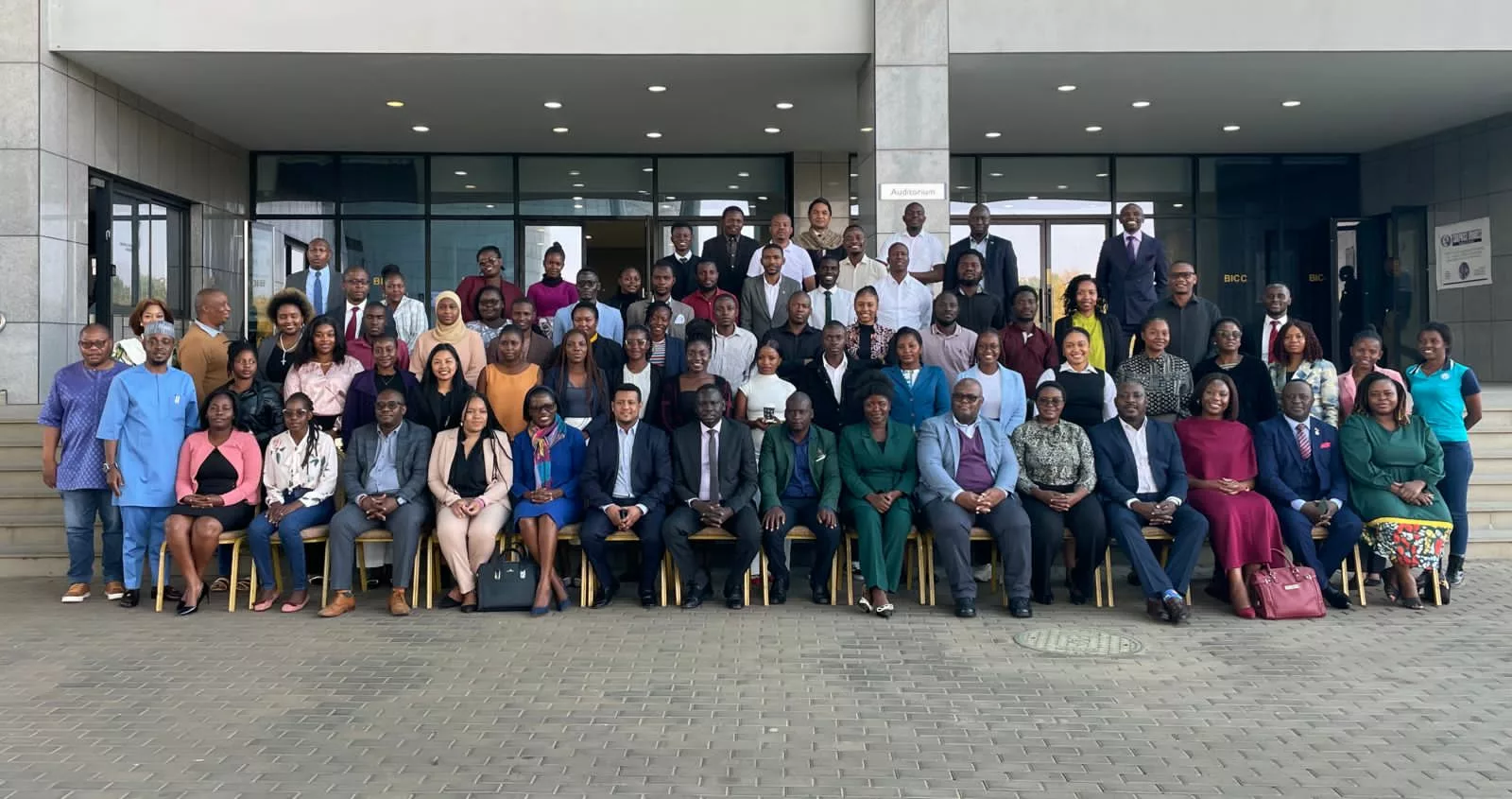To give substance to the commitments made under the Malabo Declaration regarding the development of African youth, the African Union has developed several policies and frameworks including the African Plan of Action for Youth Empowerment (APAYE) 2019- 2024 – an instrument to galvanize youth development stakeholders.
These sentiments were expressed by Mukulia Kennedy, the Principal Policy Officer of Rural Development of the Directorate of Agriculture and Rural Development Directorate of the African Union Commission, who was speaking on behalf of his Director, Dr. Godfrey Bahiigwa at the two-day African Union African Agribusiness Youth Strategy (AAYS) Regional Dialogue for Southern Africa Region that kicked off today, 1 August 2024, in Lilongwe, Malawi.
“The Malabo Declaration on Accelerated Agricultural Growth and Transformation for Shared Prosperity and Improved Livelihoods, endorsed at the African Union summit in 2014, identifies specific youth-related targets under its “Commitment to Halving Poverty by the Year 2025. These are to
create job opportunities for at least 30% of youth in the agricultural value chains; support and facilitate preferential entry and participation for women and youth in gainful and attractive agribusiness opportunities; give substance to the commitments made under the Malabo Declaration regarding the development of African youth.
“The AU has developed several policies and frameworks that address the issues of the youth. Among these policy frameworks is the African Youth Charter, which prescribes responsibilities to Member States for the development of youth. The African Youth Charter underlines the rights, duties, and freedoms of youth. It also paves the way for the development of national programmes and strategic plans for their empowerment.
“The African Plan of Action for Youth Empowerment (APAYE) 2019- 2024 is an instrument to galvanize youth development stakeholders towards key targets on the Continent. The development of the APAYE considered the various youth AUC strategies and documents on Youth Development and the ones of partners, including the United Nations, to ensure concerted and robust efforts toward addressing Youth Empowerment in Africa,” he said.
Duncan Samikwa, Senior Programme Officer, Food Security, and Agriculture, speaking on behalf of the Southern African Development Community (SADC) Executive Secretary, His Excellency Mr. Elias Magosi, said Africa’s population is set to reach 1 billion people by 2033, three-quarters of those being the youth.
“This workshop is very important as it is going to help our member states in the region, southern Africa, to integrate the youth issues, the youth concerns in what we call national agriculture investment programs. It is also going to catalyze and put strategies in place for youth employment and entrepreneurship. We don’t want youth issues to appear as just slogans but as practical steps and guidelines to uplift the youth.
“So we throw in the youth to make it look complete. But now we are happy to be here to make sure that your voice should be heard. We don’t want to continue to, as a region, plan on behalf of the youth. What do you want to plan, what are your concerns, what are your fears and what are your solutions as part of the planning process? We don’t want to continue to, as a region, plan on behalf of the youth. The youth understand their issues better than anyone else,” Samikwa said.
Eluphy Nyirenda, the Malawi Country Director of the Alliance for Green Revolution in Africa (AGRA), said Malawi has a youthful population of over 15 million below 35 years of age.
“With this hindsight, AGRA’s strategy is focused on creating 746, 126 work opportunities for youth, 25, 523 of which will be dignified jobs. We will also focus on supporting young people with disabilities and in refugee camps by creating 5, 013 dignified jobs for them, Nyirenda said.
Rex Chapota, the Executive Director of the National Youth Council of Malawi bemoaned the fact that despite being the continent with vast natural resources, Africa is a net importer of food.
“Young people must rise and take their position in the agrifood space. They have great innovation potential. You are here because the youth can change the way the food sector has been in a great space of time. We are here to measure what agriculture students can bring. Africa can not be counted to stand on its feet if it continues to beg for food. We should have the zeal to change the fortune of Africa. We can only be liberated if we can feed ourselves. Agriculture is at the heart of Malawi’s nation. Let the youth speak the truth to turn around the fortune of agriculture on the African continent,” Chapota said.






